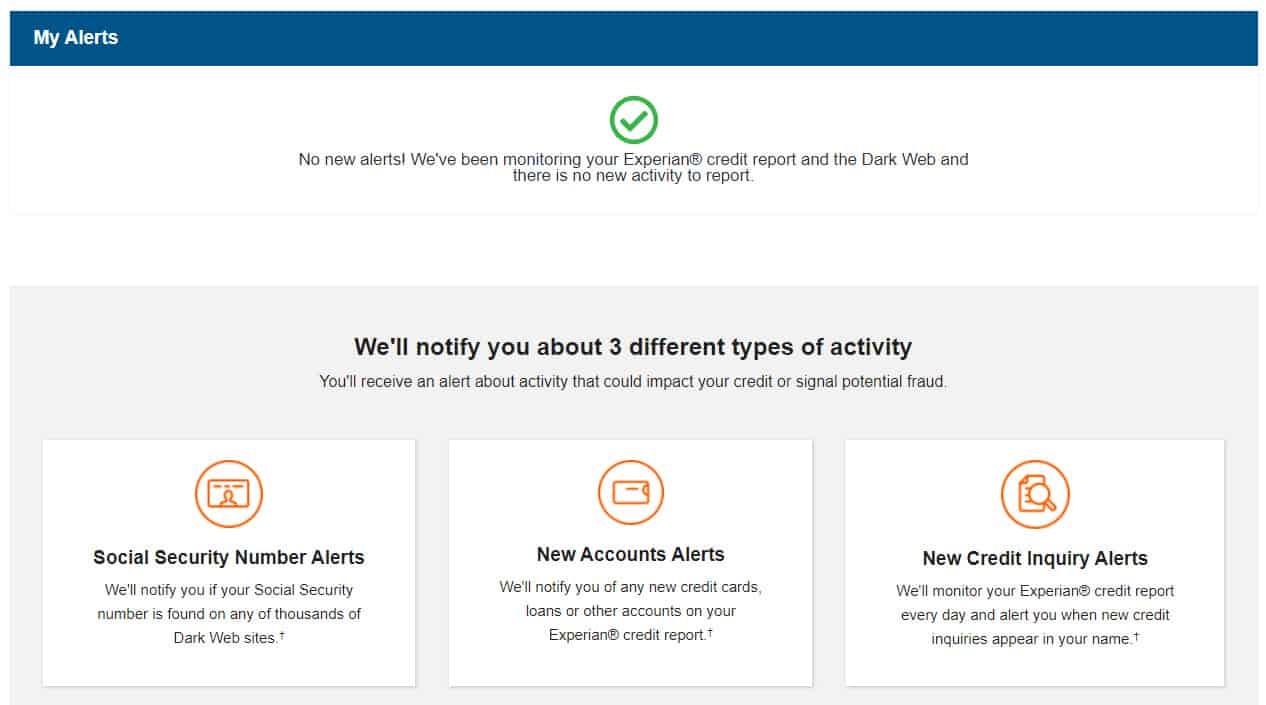

Finance
Which Credit Bureau Reports The Highest Score
Published: March 4, 2024
Find out which credit bureau reports the highest score and how it can impact your finances. Learn how to improve your credit score and manage your finances effectively.
(Many of the links in this article redirect to a specific reviewed product. Your purchase of these products through affiliate links helps to generate commission for LiveWell, at no extra cost. Learn more)
Table of Contents
- Understanding Credit Scores and Variations Across Bureaus
- What is a Credit Score?
- Why do Credit Scores Vary Between Bureaus?
- How do the Credit Bureaus Calculate Credit Scores?
- Which Credit Bureau Reports the Highest Score?
- Factors to Consider When Comparing Credit Scores from Different Bureaus
- How to Improve Your Credit Score Across All Bureaus
- Conclusion
Introduction
Understanding Credit Scores and Variations Across Bureaus
Welcome to the complex world of credit scores, where a seemingly simple three-digit number can hold significant sway over your financial life. When it comes to credit scores, one of the most common questions that arises is, “Which credit bureau reports the highest score?”
Before we delve into the intricacies of this question, it’s important to grasp the fundamental concepts of credit scores and the role of credit bureaus in determining them. A credit score is a numerical representation of an individual’s creditworthiness, serving as a vital tool for lenders to assess the risk of extending credit to a borrower. This score is derived from the information contained in a credit report, which includes details about an individual’s borrowing and repayment history, outstanding debts, and the length of their credit history.
It’s essential to recognize that credit scores are not static; they can vary across different credit bureaus. This variation can lead to confusion and uncertainty, especially when individuals receive different credit scores from different bureaus. Understanding the reasons behind these discrepancies and knowing how to navigate them is crucial for anyone seeking to maintain or improve their creditworthiness.
What is a Credit Score?
A credit score is a three-digit number that reflects an individual’s creditworthiness and is used by lenders to evaluate the likelihood of a borrower repaying their debts. This numerical assessment plays a pivotal role in determining the terms and conditions of credit extended to an individual, including the interest rates and credit limits.
Several factors contribute to the calculation of a credit score, with the most common being payment history, amounts owed, length of credit history, new credit, and types of credit used. Payment history holds significant weight in determining a credit score, as it showcases an individual’s track record of making timely payments on credit accounts, loans, and other financial obligations. The amounts owed, or credit utilization, reflects the percentage of available credit being utilized and serves as a key indicator of financial responsibility.
The length of an individual’s credit history is another influential factor, as it provides insight into their experience with managing credit over time. New credit inquiries and the types of credit utilized also impact the credit score, with multiple recent inquiries potentially signaling financial distress and various types of credit, such as credit cards, mortgages, and installment loans, demonstrating a diverse credit portfolio.
It’s important to note that credit scores are not universal and can vary between different scoring models and credit bureaus. While the FICO® Score and VantageScore® are among the most widely used credit scoring models, each bureau may use its proprietary formula to calculate credit scores, leading to discrepancies across reports.
Understanding the components that contribute to a credit score is essential for individuals aiming to maintain a healthy credit profile and navigate the complexities of the credit scoring system.
Why do Credit Scores Vary Between Bureaus?
The variation in credit scores across different credit bureaus can be attributed to several key factors. While the fundamental goal of assessing an individual’s creditworthiness remains consistent, variations arise due to differences in scoring models, data reporting, and the specific algorithms utilized by each credit bureau.
Scoring Models: One of the primary reasons for variations in credit scores is the utilization of different scoring models by credit bureaus. For instance, FICO® Score, developed by the Fair Isaac Corporation, is widely used and has multiple versions, each catering to specific loan types. Conversely, VantageScore®, a newer scoring model jointly created by the three major credit bureaus, employs a different methodology for score calculation. These variations in scoring models can lead to differences in credit scores reported by different bureaus.
Data Reporting: Credit bureaus rely on data reported to them by lenders, financial institutions, and creditors to compile credit reports and calculate credit scores. Discrepancies in the data reported to different bureaus, such as varying reporting schedules and data accuracy, can result in differences in credit scores. Additionally, not all creditors report to all three major credit bureaus, leading to variations in the information available to each bureau for score calculation.
Algorithm Differences: Each credit bureau utilizes its proprietary algorithm to process the data contained in credit reports and generate credit scores. These algorithms may weigh certain credit behaviors and factors differently, leading to discrepancies in the resulting scores. Additionally, the frequency of updates to scoring models and algorithm adjustments can contribute to variations in credit scores reported by different bureaus.
Understanding the underlying reasons for credit score variations between bureaus is essential for individuals seeking to comprehend their credit profiles and make informed financial decisions. While these variations may lead to discrepancies in reported scores, the fundamental principles of responsible credit management remain consistent across all bureaus.
How do the Credit Bureaus Calculate Credit Scores?
Credit bureaus utilize sophisticated algorithms to calculate credit scores based on the information contained in an individual’s credit report. While the specific details of these algorithms are proprietary and not publicly disclosed, understanding the general principles underlying credit score calculation can provide valuable insight into the process.
Data Compilation: The credit bureaus compile data from various sources, including lenders, financial institutions, and creditors, to generate credit reports. These reports contain detailed information about an individual’s credit accounts, payment history, outstanding debts, and other relevant financial data.
Scoring Models: Each credit bureau employs a specific scoring model, such as the FICO® Score or VantageScore®, to process the data contained in credit reports and generate a numerical credit score. These scoring models consider a range of factors, including payment history, credit utilization, length of credit history, new credit inquiries, and the types of credit used, to assess an individual’s creditworthiness.
Weighted Factors: The factors contributing to a credit score are weighted based on their perceived importance in predicting credit risk. For example, payment history and credit utilization typically carry significant weight in most scoring models, as they are strong indicators of an individual’s financial responsibility and ability to manage credit effectively.
Score Calculation: Once the relevant data is processed through the scoring model’s algorithm, a three-digit credit score is generated, reflecting an individual’s creditworthiness at a specific point in time. This score serves as a numerical representation of the individual’s likelihood of repaying debts and managing credit responsibly.
It’s important to note that while the general principles of credit score calculation remain consistent across credit bureaus, variations may arise due to differences in scoring models, data reporting, and algorithmic nuances. Understanding the factors that contribute to credit score calculation can empower individuals to take proactive steps in managing their credit and improving their overall financial standing.
Which Credit Bureau Reports the Highest Score?
One of the common queries among individuals monitoring their credit profiles is related to the variation in credit scores reported by different bureaus. While the question of which credit bureau reports the highest score is straightforward, the answer is nuanced due to the diverse scoring models and data reporting practices employed by each bureau.
FICO® Score vs. VantageScore®: The two most prevalent scoring models utilized by credit bureaus are the FICO® Score and VantageScore®. The FICO® Score, developed by the Fair Isaac Corporation, has multiple versions tailored to specific loan types, such as auto loans and mortgages. On the other hand, VantageScore®, jointly created by the three major credit bureaus, offers a competing scoring model with its own set of criteria for score calculation.
Credit Bureau Variations: When assessing credit scores across different bureaus, it’s essential to recognize that each bureau may receive varying data from creditors and employ distinct algorithms to process this data. As a result, discrepancies in credit scores may arise due to differences in data reporting, scoring models, and algorithmic nuances unique to each bureau.
Score Consistency: While credit scores may vary between bureaus, the fundamental principles of credit management and responsible financial behavior remain consistent across all scoring models. Factors such as making timely payments, maintaining low credit utilization, and managing a diverse credit portfolio are universally recognized as positive credit behaviors, regardless of the bureau reporting the score.
Ultimately, the question of which credit bureau reports the highest score may not have a definitive answer, as the reported scores are influenced by a myriad of factors specific to each bureau. Instead of fixating on the highest reported score, individuals are encouraged to focus on maintaining healthy credit practices across all bureaus, thereby ensuring a positive credit profile regardless of the specific numerical score reported.
Factors to Consider When Comparing Credit Scores from Different Bureaus
When evaluating credit scores from different bureaus, it’s crucial to consider several key factors that can contribute to variations and discrepancies. Understanding these factors can provide clarity and insight into the differences observed across credit reports and scores.
Scoring Models: Different credit bureaus may utilize distinct scoring models, such as the FICO® Score and VantageScore®, each with its unique criteria for evaluating creditworthiness. Variations in scoring models can lead to differences in credit scores reported by different bureaus, making it essential to recognize the specific model employed by each bureau.
Data Reporting: Discrepancies in the data reported to different credit bureaus can significantly impact the credit scores generated by each bureau. Variances in reporting schedules, data accuracy, and the specific creditors reporting to each bureau can contribute to differences in the information available for score calculation, leading to divergent credit scores.
Algorithmic Differences: Each credit bureau utilizes its proprietary algorithm to process the data contained in credit reports and generate credit scores. These algorithmic differences, including the weighting of specific credit factors and the frequency of scoring model updates, can result in variations in the credit scores reported by different bureaus.
Credit Report Accuracy: Ensuring the accuracy of the information contained in credit reports is vital when comparing credit scores from different bureaus. Discrepancies or errors in credit reports can lead to divergent scores, emphasizing the importance of regularly reviewing and addressing any inaccuracies in credit reports with the respective bureaus.
Consistent Credit Management: While credit scores may vary between bureaus, the fundamental principles of responsible credit management remain consistent. Factors such as making timely payments, maintaining low credit utilization, and managing a diverse credit portfolio are universally recognized as positive credit behaviors, irrespective of the bureau reporting the score.
By considering these factors when comparing credit scores from different bureaus, individuals can gain a comprehensive understanding of the nuances influencing their credit profiles and make informed decisions to maintain and improve their overall creditworthiness.
How to Improve Your Credit Score Across All Bureaus
Improving your credit score across all bureaus requires a proactive approach to credit management and a focus on consistent, responsible financial behaviors. While credit scores may vary between bureaus, the fundamental principles of credit improvement remain consistent across all scoring models. Here are several strategies to enhance your credit score across multiple credit bureaus:
Monitor Your Credit Reports: Regularly review your credit reports from all three major credit bureaus—Equifax, Experian, and TransUnion—to ensure accuracy and identify any discrepancies. Addressing errors or inaccuracies in your credit reports can positively impact your credit scores across all bureaus.
Manage Payment History: Making timely payments on all credit accounts, loans, and other financial obligations is crucial for improving and maintaining a positive credit score. Consistent, on-time payments demonstrate financial responsibility and can positively influence credit scores reported by all bureaus.
Reduce Credit Utilization: Lowering your credit utilization, or the percentage of available credit being utilized, can have a significant impact on your credit scores across all bureaus. Aim to keep your credit card balances low relative to your credit limits, as high utilization can negatively affect credit scores.
Diversify Your Credit Portfolio: Managing a diverse mix of credit accounts, such as credit cards, installment loans, and mortgages, can contribute to a positive credit profile across all bureaus. Demonstrating responsible management of various credit types can enhance your overall creditworthiness.
Limit New Credit Inquiries: Minimize the number of new credit inquiries, as multiple inquiries within a short period can signal financial distress and potentially lower your credit scores across all bureaus. Only apply for new credit when necessary and be mindful of the potential impact on your credit profile.
Establish a Lengthy Credit History: While not immediately changeable, maintaining a longer credit history can positively influence your credit scores across all bureaus over time. Responsible credit management over an extended period demonstrates stability and financial reliability.
Utilize Credit Monitoring Services: Consider utilizing credit monitoring services to stay informed about changes in your credit reports and scores across all bureaus. These services can provide valuable insights and alerts regarding potential factors impacting your creditworthiness.
By implementing these strategies and maintaining consistent, responsible credit management practices, you can work towards improving your credit score across all major credit bureaus, ultimately strengthening your financial standing and access to favorable credit opportunities.
Conclusion
Navigating the intricacies of credit scores and their variations across different bureaus can be a complex yet essential aspect of managing one’s financial well-being. While the question of which credit bureau reports the highest score may not have a definitive answer, understanding the factors influencing credit score variations and employing proactive credit management strategies is paramount for individuals seeking to maintain and improve their creditworthiness.
It’s crucial to recognize that credit scores are dynamic and can vary due to differences in scoring models, data reporting, and algorithmic nuances unique to each credit bureau. Rather than fixating on the highest reported score, individuals are encouraged to focus on consistent, responsible financial behaviors that positively impact credit scores across all bureaus.
Regularly monitoring credit reports, managing payment history, reducing credit utilization, diversifying credit portfolios, and limiting new credit inquiries are foundational strategies for improving credit scores across all bureaus. Additionally, maintaining a lengthy credit history and utilizing credit monitoring services can contribute to a comprehensive approach to enhancing creditworthiness.
By embracing these strategies and understanding the nuances of credit scoring, individuals can proactively work towards improving their credit scores across all major credit bureaus, ultimately strengthening their financial standing and access to favorable credit opportunities. While variations in credit scores may persist, a steadfast commitment to responsible credit management can pave the way for a more secure and prosperous financial future.














